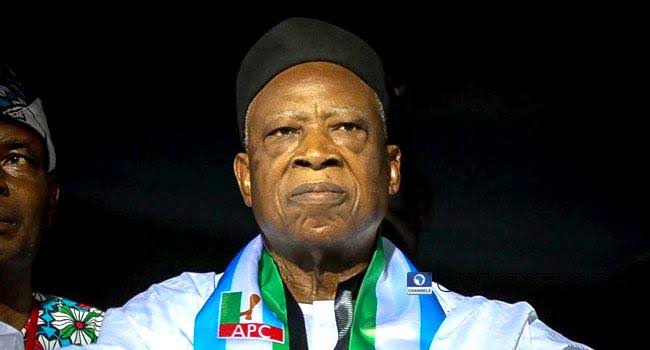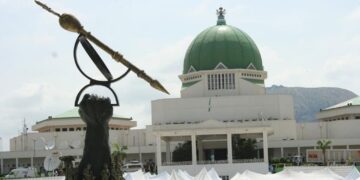[ad_1]
Abdullahi Adamu, National Chairman of the All Progressives Congress (APC), has expressed fear over the deployment of the Bimodal Voter Accreditation System (BVAS) for the 2023 general election.
Mr Adamu said he doubts that the introduction of BVAS by the Independent National Electoral Commission (INEC) for the transmission of the election would produce a fair result.
He identified the challenges of network failure and electricity problems as major hindrances that could mar the use of the technology for the 2023 elections.
“First, I was privileged to serve as a senator. But our concern is how ready are we to deploy some of these technologies as regards transmission because we are taking a major step in transmitting election results in real-time.
“To transmit results, every part of the nation – Nigeria, I’m not sure that the network covers it, I know that even in parts of Abuja, there is no network and we have from now till February when in substantial parts of the country, there is no electricity,” he said on Wednesday in Abuja.
In 2021, INEC introduced BVAS into the country’s electoral exercise, allowing for the accreditation of voters through biometrics capturing, and uploading of polling results among other functions.
The technology was first deployed for use by the electoral body in the Isoko South Constituency I by-election in Delta State on September 10, 2021.
The device was also deployed for use during the November 6, 2021, Anambra governorship election, although not without some hiccups.
While commissioning the BVAS in Abuja, INEC National Chairman, Mahmood Yakubu, said the compact device was intended to achieve two objectives.
Mr Yakubu identified the objectives as the verification of the genuineness of the PVCs and the fingerprint or facial authentication of voters during accreditation and to replace the Z-pad for uploading the polling unit results to INEC Result Viewing Portal (IReV) in real-time on election day.
With the 2023 presidential election barely 93 days, and with eighteen political parties already fielded presidential candidates for the exercise, the ruling party chairman has sought to sow doubts on the credibility of the BVAS.
Mr Adamu, who spoke while receiving a delegation from the Commonwealth on the 2023 general election to the party secretariat in Abuja, said the country does not cut the image of a nation that is ready to take the risk of deploying such technology for use.
According to him, the electoral body must assure the party and Nigerians that it is 100 per cent sure and ready that the proposed use of BVAS for the poll would be smooth and without any hitches.
“INEC must assure us 100 per cent that as of when due in transmitting results, they are ready because they spoke about recharging batteries. But we heard in previous elections when it says it can’t recharge,” the governing party national chairman added.
Different stakeholders have described BVAS as an upgrade of the smartcard reader, which was used in the 2019 elections as well as a game changer in the country’s electoral process.
In preparation for the 2023 election, INEC had already declared that it would be deploying over 200,000 BVAS across the country for the exercise.
[ad_2]







